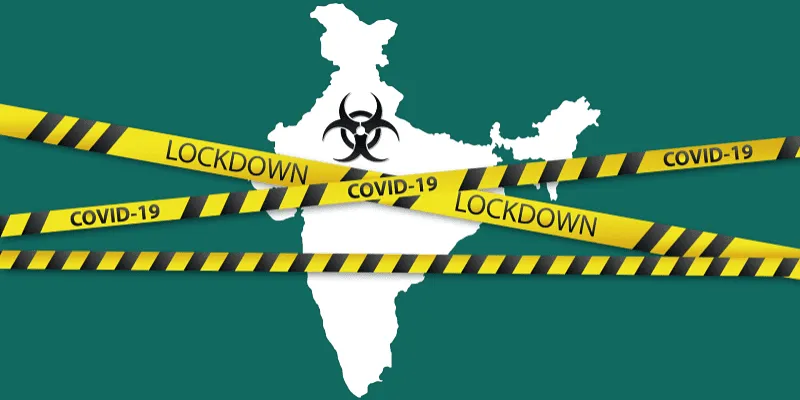The moral dilemma that all employers are facing amid COVID-19 Lockdown 2.0
The government can consider incentivising companies that take the unconventional and humane road of retaining employees by announcing low-interest loans or decent tax breaks/exemptions.

It’s not just lives that are hanging in balance as India enters Lockdown 2.0. Livelihoods are, too.
The 21-day lockdown translated into financial woes for everyone – from new entrants to established business players. All of them struggled with one moral dilemma: to save the business or save livelihoods.
Ahead of Lockdown 1.0, Ministry of Labour and Employment asked Chief Secretaries of States/UTs to issue an advisory to all employers of public/ private establishments to not terminate their employees, particularly casual or contractual workers, from jobs or reduce their wages.
States such as Haryana, Puducherry, and more recently, Karnataka followed suit by issuing similarly worded advisories to concerned departments for dissemination to employers.
In a novel use of the epidemic diseases law, the Delhi government, while ordering lockdown from March 23-31, 2020, directed that employees (including temporary/contractual/outsourced etc.) of private establishments staying at home be paid in full. Telangana also issued a similar direction while imposing lockdown till March 31 (later extended till April 14).
However, as of date, none of these directions have been continued till May 3, leaving it unclear if these directions have run their course.
At the Centre, the Home Ministry invoked the Disaster Management Act, 2005, on March 29 to direct employers to pay full wages to workers during the lockdown period. This measure was prompted in the wake of the mass migrant workers’ movement.
Though the Centre has extended the lockdown measures till May 3, this direction to fully pay workers neither finds mention in consolidated guidelines nor has been expressly renewed.
The critical question
These directions give rise to the important question: can employers still resort to layoffs/retrenchments/pay cuts, if required?
The Industrial Disputes Act, 1947, provides for layoffs and retrenchment of workmen. An employer can lay off a workman if unable to provide employment for number of reasons, including a natural calamity.
Layoffs are, of course, subject to payment of statutory dues to the workman, which can be negotiated and avoided after the 45-day period of layoffs. On the workman remaining laid off after the 45-day period, the employer can retrench/terminate employment if other conditions are met.
The appropriate authority’s permission is required before laying off or retrenching only where an industrial establishment employs 100 or more workmen.
Of all the directions, the directions discouraging layoffs/retrenchment is the advisory issued by the Labour Ministry on March 20, and follow-on advisories by state governments.
As the direction itself suggests, it is an “advisory” to seek employers’ cooperation. At best, it imposes a moral obligation, not a legal one. This explains why no legal provision has been cited in support of such an advisory. Moreover, an advisory of this nature from the labour ministry cannot overcome statutory rights that otherwise have an overriding character under the act.
The legal ambiguity
The bigger picture must not be forgotten.
Despite theories floating around, COVID-19 is still not attributable to a human fault, particularly to Indian businessman. Long before the lockdown, on February 19, Ministry of Finance considered COVID-19 a “natural calamity” to invoke force majeure where supply chains were disrupted by the spread of this virus.
If deadlines for contracts can be extended citing COVID-19 as a natural calamity, what is to say that the same logic cannot be used to lay off/retrench workman? However, authorities may be not so forthcoming for industrial establishments requiring prior permission from the government for lay-offs/retrenchments.
As far as directions against pay cuts are concerned, no support can be found under the Industrial Disputes Act, which is silent on wage deduction for temporary closure of establishments.
Perhaps this is why the generic language of Section 10(2)(l) of the DMA, which provides for “measures” to be taken “in response” to any “threatening disaster situation or disaster”, has been availed by the Home Ministry to ask employers to refrain from pay cuts. With the lack of clarity, it is debatable whether a direction to prevent pay cuts can amount to a measure in response to this disastrous pandemic.
Notwithstanding the legal ambiguity in these measures, the question still remains that if the objective was to protect livelihoods of those really in need, why stretch it to all classes of workers/employees, possibly including white-collar jobs, and to all kinds of establishments, shops, factories etc.?
Can the government resolve this dilemma?
Micro, Small and Medium Enterprises (MSME) play a huge role in the Indian economy. These directions are a source of worry for MSMEs that don’t’ have strong balance sheets.
Hopefully, with phased opening of the economy under Lockdown 2.0, these concerns may not persist for long. Still, clarity on the directions against job and pay cuts for businesses under lockdown and even those operating is required.
While Prime Minister Narendra Modi’s appeal to not go for job cuts is appreciable, a helping hand is required to aid companies from falling into the pit. If businesses shut down, what good would such directions bring any way?
Thus, a case for a fiscal stimulus is made out for the private sector - not just for the loss already suffered and what may ensue in the coming months. The government’s decision to contribute to the employee provident fund, for both the employer and employee, is a step in the right direction.
Apart from following in the footsteps of our foreign counterparts, which are offering wage subsidisation, the government can consider incentivising companies that take the unconventional and humane road of retaining their employees by announcing low-interest loans or decent tax breaks/exemptions.
These measures may restore the balance to save businesses, potentially ensuring protection of livelihoods.
Until then, the employers’ moral dilemma continues.
Edited by Teja Lele
(Disclaimer: The views and opinions expressed in this article are those of the author and do not necessarily reflect the views of YourStory.)








